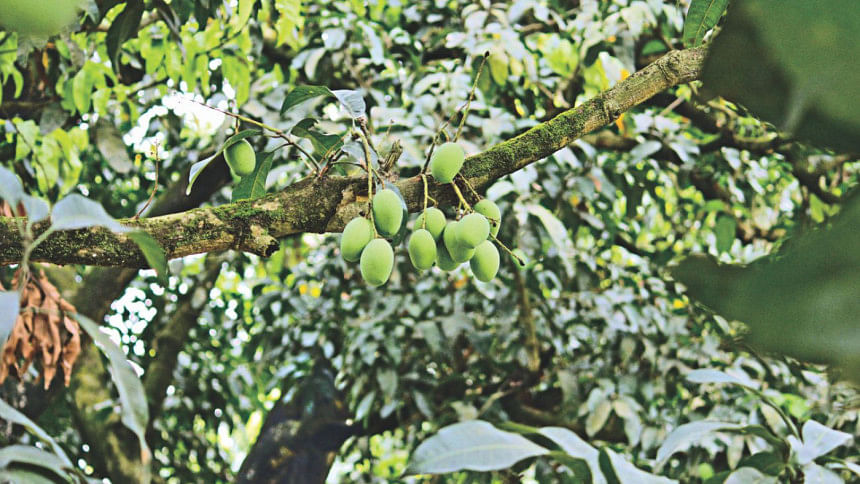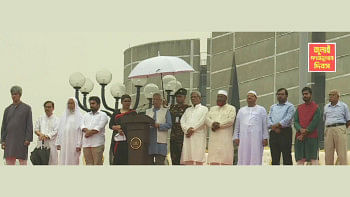Fani’s silver lining: A blessing for mangoes

The rain that the weakened cyclonic storm Fani brought yesterday has made the mango farmers of Rajshahi region happy, considering prospect of a good yield.
Mango researchers say the rainfall during Fani would boost the early varieties of mangoes like Gopalbhog and Khirsapat that are expected to appear in markets in about three weeks. However, the late varieties like Fazli, widely known as the “king of mangoes”, would need irrigation.
Meanwhile, eye of the cyclonic storm was weak when it swept over Chalan Beel in Natore yesterday, blowing heavy wind and rain across Rajshahi, Chapainawabganj, Natore, and Naogaon districts.
Mango orchards in the region usually remain dry and the abscission layer on the peduncles of mangoes remain weak due to lack of water during this period, said Dr Sorof Uddin, senior scientific officer at Bangladesh Agricultural Research Institute, who has been transferred to Moulvibazar from Chapainawabganj, recently.
“Thanks to the rain, mango farmers will not need any irrigation to orchards of the early varieties,” Dr Sorof said, adding, “and the rain water will make the fruits stronger, bigger and sweeter.”
Mangoes suffered a blow during the budding period when it rained in the month of Falgun, and in the last couple of weeks mangoes were dropping due to lack of rain, Hasan Al Sadi, owner of a mango orchard in Chapainawabganj’s Chhotrajitpur, said.
“I regained hope with the rain,” he said.
He said rains coupled with wind would also free the mango trees from pests.
“The rains were a blessing for us,” Sadikul Islam, owner of a mango orchard in Chapainawabganj town’s Mistripara area, said. “The mangoes will grow better. We won’t need any irrigation,” he said.
Dr Saifur Rahman, deputy director of Chapainawabganj Horticulture Centre, said the rains would also delay ripening of the mangoes, thus buying the farmers more time for harvest.
Department of Agriculture Extension increases their targets of mango cultivation and production every year, but following calamities, they have kept the targets same as last year’s.
Last year, 8,66,361 tonnes of mangoes were produced on 70,361 hectares of land in the region’s four districts -- Chapainawabganj, Rajshahi, Natore and Naogaon.
After the rain yesterday, DAE Deputy Director Md Shamsul Haque said they would reconsider setting the targets higher.
“We consider that some mangoes would naturally drop during this time of storms,” he said.
During a visit to Paba upazila after the rain yesterday, some children were seen picking the mangoes that had dropped. Some of them were also selling those at Duari village.

 For all latest news, follow The Daily Star's Google News channel.
For all latest news, follow The Daily Star's Google News channel. 



Comments